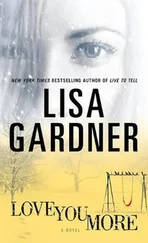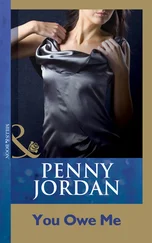Mum remembers that Matt was very blue when he was born, because his lungs had not inflated. Although he was two and a half ounces heavier than me, he was even more delicate because he had had a more difficult birth.
The doctors explained to Mum that we had been lying back to back in her womb and that our heartbeats had been synchronized, which was why they had failed to detect that there were two of us. It was the next day before she was taken in a wheelchair to see us in our incubators. She could not feed us herself, we had to be tube-fed straight into our stomachs.
‘I loved them desperately from the moment I saw them,’ she says. ‘I know the experts say that mothers need to touch their babies to bond with them – well, it’s not true. I was longing to hold them, but even though I wasn’t allowed to it certainly didn’t stop me loving them. It was such an intense emotion it hurt.
‘They were in incubators next to one another, alike as two peas in a pod. But even then I could see a difference between them. Matthew had a rounder face than Luke, he was tubbier even though they were so tiny.’
When Dad saw us in the incubators his main feeling was pride. ‘I felt so incredibly proud of them – and yet at the same time I felt a fraud, because I didn’t seem to have done much. I felt so sorry for my wife Carol: she’d had a difficult pregnancy and a difficult birth, and I seemed to have got off very lightly. Just looking at them lying there, so small and yet perfect, I was amazed that it was anything to do with me.
‘I remember someone asking me if I had insured against having twins, and I felt insulted – as though having twins was a disaster, like a flood, to be insured against. But I must admit the money would have come in handy!
‘I don’t really think I did have a premonition about twins, but I can remember waiting inside the hospital once while Carol was attending an antenatal class and fantasizing about the possibility. For some reason I thought if one was a boy and one a girl I would phone Carol’s parents and tell her mum that she had a grandson and her dad that he had a granddaughter, and leave them to work it out for themselves. I never thought about two boys.’
If they had thought about two boys, they might have had another name ready. They had chosen my name before the birth: Luke Damon. If I’d been a girl I would have been Rebecca! They weren’t ready with another boy’s name, and it was Mum who chose Matthew Weston when the registrar called at the hospital to register the new babies.
Dad remembers her telling him about it when he visited her in hospital. ‘Carol told me she had named the second baby after her father, who everyone called Harry. I said, “Harry? You called him Harry?” She shook her head and I remembered that her father was also known as Sam. Harry and Sam are fashionable names now, but they weren’t then and I wasn’t keen on either of them. But she shook her head again – her father’s name is actually Samuel Matthew, and it was Matthew she had chosen, to my relief.
‘Then she said she’d given him a second name after my father. “Denis?” I asked, because that’s my stepfather’s name, and I didn’t like that much. No, Weston, she said – that’s his surname. I liked that, and unbeknown to us both at the time my real father also has Weston as his second Christian name, so it worked out fine.
‘It was only afterwards that I realized Luke and Matthew together made us sound a very Biblical family, which we weren’t. But I liked both the names very much.’
So that’s how my brother and I were launched on the world.
It was the week that Mary Hopkin hit the top of the charts with ‘Those Were the Days’ – and they certainly were for my parents. Coping with one baby is difficult, but twins are a nightmare.
But to understand anything about anybody, you have to go back a long way before their birth. How any of us ends up is influenced by a great many factors, but our parents have the most crucial role to play …
My mother, Carol, was born in Peckham, south-east London, in 1946. Her father Harry, my granddad, was in the building trade: the war had interfered with his studies to become a surveyor, but he ended up as a building-site foreman. My grandmother, Win, worked in a variety of different jobs, usually as a shop assistant.
Harry and Win’s home had been blown up during the war, and afterwards Harry made such a stink that the housing department of the local council found them a prefab – he threatened to pitch a tent for his family outside the council offices if they didn’t get a home.
‘Prefabs’ were prefabricated buildings that were put up hastily all over the country after the war, to help with the massive housing problem caused by the population bulge. Lots of men, like my granddad, came back from fighting and didn’t waste any time before having families. They’d given seven years of their lives to their country, and they weren’t prepared to wait any longer, certainly not until the government got around to building enough houses for them all.
Prefabs were far from being shanty-style houses, even though they were put up very quickly and didn’t have traditional brick walls. They were warm – they had central heating before it became standard in British houses – and they came fully equipped with fridges and cookers, back in the days when fridges were luxury items. So my nan and granddad were very happy there with their two daughters – my auntie Ann was born within a couple of years of my mum.
When my nan was thirty-nine she had another baby, as much to her astonishment as everyone else’s. My aunt Sally was born on my mother’s twelfth birthday, and because of that my mum has always regarded her as a bit special.
‘I thought she was my own personal present, an extra-special birthday gift,’ says Mum.
About the same time Sally was born, the family were moved by the council to a maisonette in Camberwell Green, because the prefabs were being pulled down. Tower blocks were put up in their place – soulless, miserable places compared to the prefab community, where everyone had taken a pride in their home and where there were annual competitions for the best gardens.
Because my grandmother worked, my mum and her sisters were largely brought up by their grandmother – my great grandmother – a smashing old lady I remember from my own childhood.
Mum stayed at school until she was fifteen and a half, when she left to take up an apprenticeship at a hairdresser’s. She had learned shorthand and typing at school, and her teachers had wanted her to stay on and take exams, but she was set on leaving and starting work.
My dad, Alan Goss, was born in a stately home. But there was no silver spoon in his mouth – his mother had been evacuated there for the birth to get away from the bombing raids on London. Dad is two years older than my mum, and he, too, comes from south-east London. His mother was sent to Luton Hoo, a stately home belonging to the Wernher family (relatives of the Royal family) in the Bedfordshire countryside near to Luton, a week or so before he was born. It was used as a maternity home for mothers from areas where there was a high risk of bombing. The London hospitals were overstretched dealing with casualties from the raids, and, besides, it was safer for the mothers and newborn babies to be out in the country.
After he was born, my dad and his mother went to live in Norfolk, where his father was stationed with the RAF. My grandfather was a technician who became an expert in the development and use of X-rays (after the war he stayed on in the RAF, and many years later worked for British Aerospace until his retirement). My grandparents and my dad lived in the village of Horsford for the last year of the war. Dad was a sickly baby and everyone was very worried about him for a few months because he did not feed well. But he survived, which is more than his parents’ marriage did: after the war his mother brought him back to Walworth and he never saw his real father until many years later, not until after his mother had died.
Читать дальше












